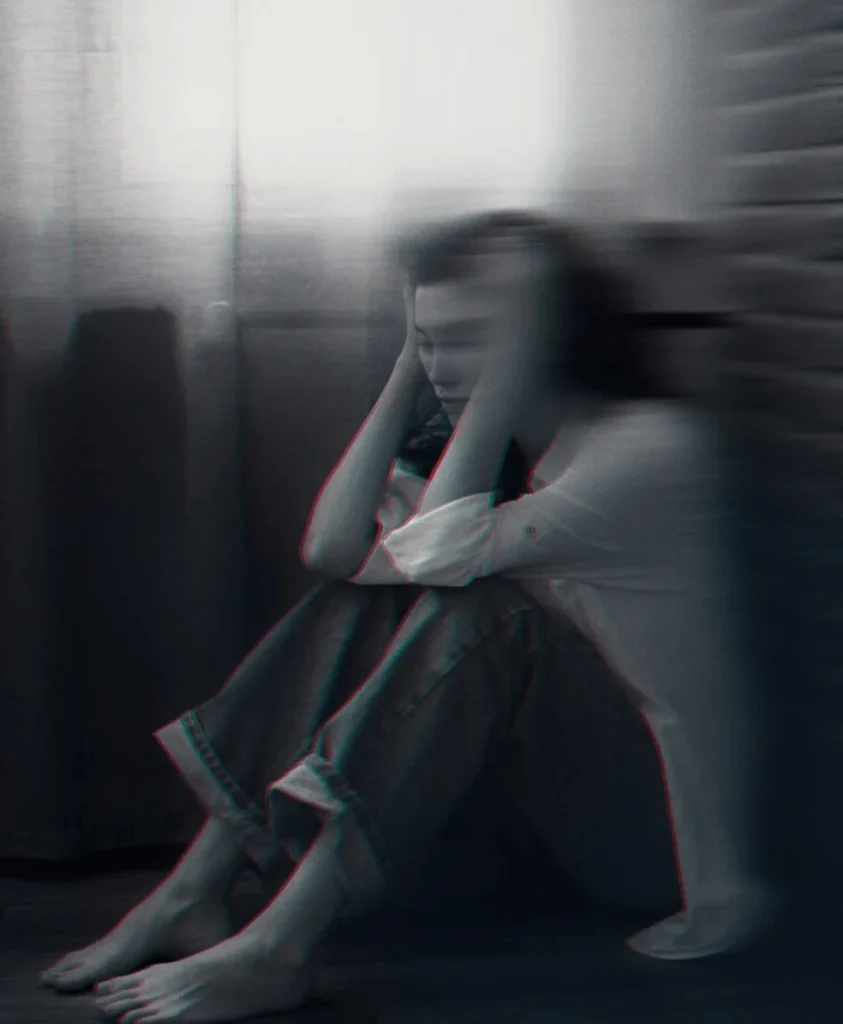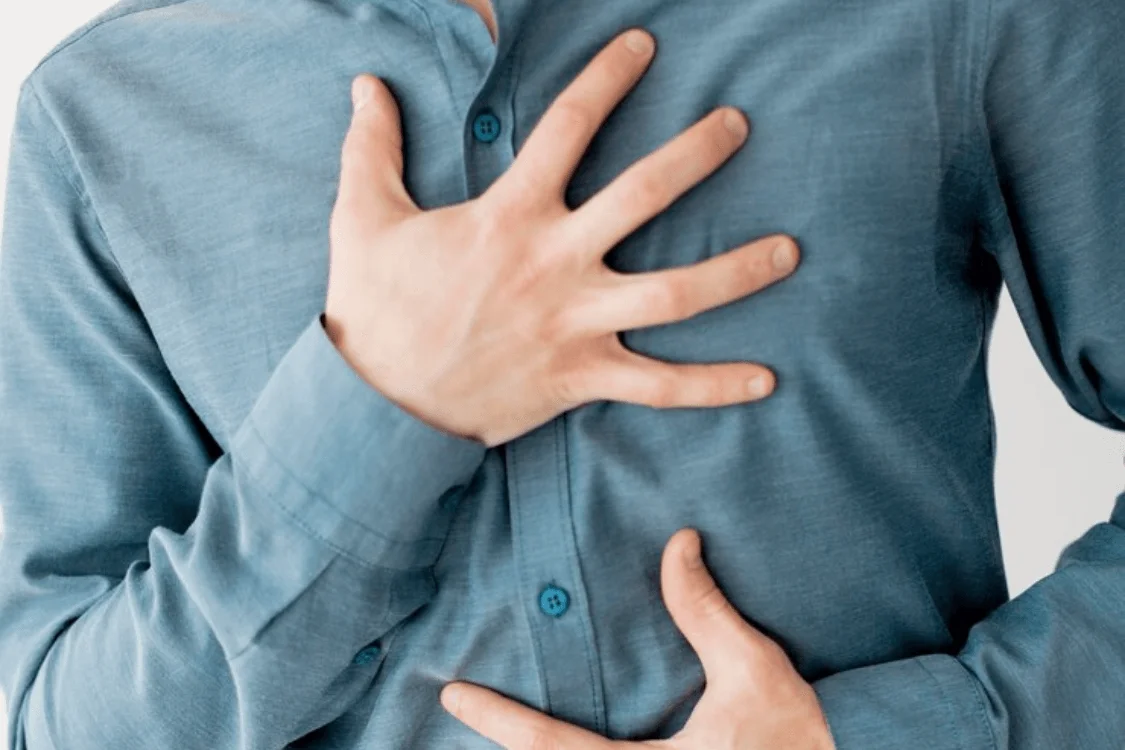
Heroin Addiction Treatment
The battle against heroin addiction is a critical public health challenge facing our society today. In 2021, approximately 0.4% of the population aged 12 or older, translating to about 1.1 million people, reported using heroin in the past 12 months, according to the National Survey on Drug Use and Health.
This alarming statistic underscores the widespread appeal of heroin across different demographics, including our youth. The Monitoring the Future Survey of 2022 reveals that heroin use is not confined to adults, with 0.3% of 8th graders, 0.2% of 10th graders, and 0.3% of 12th graders admitting to using heroin within the same timeframe.
This condition signifies not just occasional use but a deeper, more problematic engagement with the drug, leading to significant health, social, and legal issues for approximately 1.0 million people.
At our drug addiction treatment center, we recognize the urgency and necessity of addressing this crisis. Through a blend of evidence-based therapies, medication-assisted treatment, and supportive care, we are dedicated to helping individuals reclaim their lives from the clutches of heroin addiction.

What is Heroin?

Heroin is an illicit drug that is both highly addictive and dangerous, known by various street names such as “hell dust” and “smack.” This drug originates from morphine, a substance derived from poppy plants and utilized in medical settings as a potent painkiller.
Heroin commonly appears as a white or brown powder and may be adulterated with substances like cornstarch and baby powder or transformed into a sticky substance known as “black tar.”
The modes of consuming heroin vary, with injection, snorting, and smoking being the primary methods. Injection, or “shooting up,” is particularly notorious for its immediate and intense effect, as the drug directly enters the bloodstream and rapidly reaches the brain.
Once in the brain, heroin activates opioid receptors, leading to a significant release of dopamine. This surge in dopamine produces the drug’s characteristic euphoria and altered perception of pain, compelling users to seek repeated experiences.
Symptoms of Being Addicted to Heroin
Heroin addiction is characterized by a range of physical, psychological, and behavioral symptoms that can severely impact an individual’s life. Understanding these signs of heroin addiction is crucial for recognizing the need for help and treatment.
Persistent Drug Use Despite Harmful Consequences
Individuals addicted to heroin continue to use the drug even when faced with serious health, legal, or social problems directly caused by their drug use. This persistent behavior indicates a loss of control over drug use and prioritization of heroin over other aspects of life.
Developing Tolerance
Tolerance occurs when the person needs increasingly larger doses of heroin to achieve the same effects previously attained with smaller amounts. This escalation is a clear indicator of physical dependence and addiction.
Compulsion to Seek and Use Heroin
A strong, often overwhelming urge to use heroin, even in situations where it is clearly dangerous to do so, underscores the compulsive nature of addiction. This compulsion can drive individuals to go to great lengths to obtain and use heroin, often at the expense of personal and professional responsibilities.
Experiencing Heroin Withdrawal Symptoms Without the Drug
When someone stops using an addictive drug like heroin after prolonged use, their body begins to react to the absence of the drug, leading to withdrawal symptoms.
These symptoms are not only uncomfortable but can also be dangerous, often driving individuals back to using the drug to alleviate their discomfort. This vicious cycle contributes significantly to the continuation of addiction.
Severe Muscle and Bone Pain
As the body adjusts to the lack of heroin, one of the most common withdrawal symptoms experienced is intense pain in the muscles and bones. This discomfort can make it challenging for individuals to find any position of comfort and is often described as one of the more severe aspects of withdrawal.
Restlessness and Insomnia
Another frequent symptom is the inability to relax or sleep despite feeling extremely tired. This restlessness and insomnia contribute significantly to the cycle of addiction, as individuals may seek out heroin again in an attempt to find relief and escape the fatigue.
Nausea and Vomiting
Opioid withdrawal, including withdrawal from heroin, is notorious for causing significant gastrointestinal distress, manifesting as nausea and vomiting. This symptom is not only uncomfortable but can also lead to dehydration and other health complications if not properly managed.
Diarrhea
Coupled with nausea, diarrhea is a common physical reaction to heroin withdrawal, further contributing to the overall physical distress experienced during this period.
Understanding the Duration and Danger of Withdrawal Symptoms
Withdrawal symptoms typically begin 8 to 24 hours after the last heroin use. The duration and intensity of these symptoms can vary greatly, depending on the length of addiction and the usual dosage of heroin consumed.
Acute withdrawal symptoms can last anywhere from 3 to 10 days, offering a glimpse of the body’s process of readjusting to the absence of heroin.
Access to medical support, including medication to ease symptoms and monitoring for any severe health complications, can significantly mitigate the dangers associated with heroin withdrawal.

Long-Term Effects of Heroin
Heroin, known for its intense “rush” of pleasure, harbors a sinister array of long-term effects that can devastate users’ health and quality of life. Initially, users may seek out heroin for the euphoria, warmth, and drowsiness it induces, alongside more uncomfortable short-term effects like dry mouth, nausea, and clouded thinking. However, those who persist with heroin use face a far grimmer reality as the drug begins to take its toll on the body and mind.
Physical Health Complications
Over time, chronic heroin use can severely damage major bodily systems. Injecting the drug can collapse veins and lead to infections at injection sites while snorting damages the nasal tissue.
More dire consequences include infection of the heart lining and valves, liver and kidney disease, and lung complications such as pneumonia, which stem from both the drug’s effects and lifestyle factors associated with addiction.
Constipation, stomach cramping, and abscesses are also common, underscoring the drug’s impact on nearly every aspect of physical health.


Mental Health Issues
The psychological toll of heroin addiction is profound, with many users experiencing depression and other mental health disorders as a result of their substance use.
The isolation, guilt, and lifestyle disruptions caused by addiction can exacerbate or trigger mental health issues, creating a cycle of use and emotional pain.
Risks and Dependencies
Heroin’s addictive nature means anyone who uses it, even as prescribed opioids, risks developing an opioid use disorder. Factors that increase this risk include heavy tobacco use, unemployment, personal or family history of addiction, and exposure to high-risk environments.
However, it’s crucial to recognize that addiction does not discriminate, and individuals from all backgrounds can find themselves dependent on heroin.
At our treatment facility, we’re committed to providing care and support for those struggling with the long-term effects of heroin use.

Heroin Addiction Treatments We Offer
We aim to address the entire spectrum of challenges presented by addiction, facilitating a journey towards lasting recovery.

Medication-Assisted Treatment (MAT)
MAT plays a pivotal role in the initial stages of recovery, utilizing medications to ease the withdrawal process and mitigate cravings, thereby reducing the likelihood of relapse. These medications interact with the same brain receptors as heroin but are designed to minimize addictive behaviors and the highs associated with drug use.

Cognitive Behavioral Therapy (CBT)
CBT focuses on identifying and changing negative thought patterns and behaviors related to heroin use. By developing coping strategies, individuals learn to deal with cravings and avoid situations that might lead to relapse.

Dialectical Behavior Therapy (DBT)
DBT helps individuals manage emotions and improve relationship skills by focusing on mindfulness, distress tolerance, emotional regulation, and interpersonal effectiveness. This therapy is particularly beneficial for those with dual diagnoses or who struggle with emotional instability.

Motivational Interviewing
This therapy enhances an individual’s motivation toward recovery by resolving ambivalence about change. Through motivational interviewing, patients explore the pros and cons of substance use, enhancing their readiness to engage in treatment and adopt healthier lifestyles.

Eye Movement Desensitization and Reprocessing (EMDR)
EMDR is aimed at individuals who have experienced trauma, which often underlies substance abuse disorders. By processing these traumatic memories, patients can reduce their influence and the emotional distress associated with them, potentially decreasing the need for heroin as a coping mechanism.

12-Step Program
The 12-step program provides a structured approach to recovery, emphasizing peer support, personal accountability, and spiritual growth. Participants engage in regular meetings, share experiences, and support one another through recovery.
Modalities for Therapy
To cater to the diverse needs of our clients, we offer a variety of therapeutic modalities designed to foster healing, growth, and long-term recovery from heroin addiction.
Individual Therapy
In individual therapy sessions, clients work one-on-one with a therapist to delve into personal triggers, past experiences, and current challenges. This personalized approach allows for deep introspection and tailored coping strategies.


Group Therapy
Group therapy offers a supportive community where individuals can share their journeys, learn from others’ experiences, and practice new skills in a safe environment. It fosters a sense of belonging and mutual support crucial for recovery.
Family Therapy
Family therapy involves the patient’s family in the treatment process, addressing the impact of addiction on family dynamics and facilitating healing and understanding among family members. This modality helps rebuild trust and improve communication.


Holistic Therapy
Our holistic therapy options, including yoga, meditation, and art therapy, support the physical, emotional, and spiritual aspects of recovery, promoting overall well-being and a balanced lifestyle post-addiction.
We are dedicated to providing an empathetic treatment experience for those trying to recover from heroin addiction.
Benefits of Heroin Addiction Treatment
Participating in a heroin addiction treatment program offers transformative benefits, deeply impacting an individual’s journey from addiction toward a fulfilling, sober life.

Reduces the Risk of Overdose
The comprehensive care provided significantly diminishes the likelihood of experiencing a potentially fatal overdose, a common risk associated with continued heroin use. Our treatment strategies are informed by the latest research from the National Institute on Drug Abuse, ensuring the most effective protocols are in place to safeguard our clients.

Restores Personal Relationships
Heroin addiction often strains or breaks personal connections. Through targeted therapy sessions and support groups available for heroin addiction, individuals learn to rebuild trust and mend relationships damaged by the cycle of drug abuse and addiction.

Supports Overall Health and Well-Being
Our program focuses on the whole person, not just the addiction. By addressing underlying issues through therapies such as CBT and DBT, participants can achieve improved mental health, emotional stability, and physical wellness.

Offers a Pathway to Recovery
Engaging in our treatment program provides a structured pathway to recovery, combining medication-assisted treatment to ease withdrawal symptoms with behavioral therapies to combat cravings. This dual approach ensures a supportive transition to a life free from heroin.

Educates on the Long-Term Effects of Heroin Use
Education plays a crucial role in recovery, helping individuals understand the long-term impacts of heroin use on their bodies and minds. This knowledge is crucial for maintaining long-term sobriety and health.

Provides Access to a Supportive Community
Recovery is often bolstered by a community of peers who understand the challenges of overcoming addiction. Our program encourages participation in group therapies and support systems that foster a sense of belonging and mutual support.
Choosing to seek treatment for heroin addiction is a courageous step towards reclaiming control over one’s life.
How We Treat Heroin Addiction
At Twilight Recovery Center, our approach to heroin addiction treatment is multi-faceted, addressing both the immediate physical challenges of withdrawal and the deeper psychological factors contributing to addiction. Our comprehensive treatment plan includes several key stages:
Detox from Using Heroin
Detoxification is the critical first step in the recovery process, where medically supervised detox ensures safety and comfort. Given heroin’s highly addictive nature, withdrawal symptoms can be intense and may begin after just a few uses.
MAT plays a vital role during this phase, helping to ease cravings and physical dependence symptoms that often lead to relapse.
Lofexidine, previously used for high blood pressure, is now employed to mitigate physical opioid withdrawal symptoms. While not a standalone treatment for heroin addiction, it is instrumental during detoxification, especially when followed by an evidence-based treatment plan.


Inpatient Heroin Rehab
Our inpatient treatment provides a structured, supportive environment for intensive care, focusing on healing the body and mind together. This residential treatment program allows individuals to recover in a safe, sober setting, free from the temptations of their usual environment.
The structured routine minimizes decision-making, allowing patients to focus solely on their recovery, with access to withdrawal management programs, medication if needed, and counseling to address both physical and psychological symptoms.
Outpatient Heroin Treatment
Outpatient treatment offers a viable solution for those requiring flexibility to manage daily responsibilities such as work, school, or childcare. The intensity of outpatient care varies based on addiction severity, ranging from daily sessions to less frequent meetings while still providing access to critical treatments like withdrawal management and various therapies.


Sober Living
Sober living facilities support individuals transitioning to everyday life, providing ongoing support and promoting long-term recovery and relapse prevention.
These environments balance independence and structure, helping individuals reinforce their sobriety in real-world settings.
Our goal is to offer a pathway to recovery that respects the needs of each individual, facilitating a journey back to health, well-being, and freedom from addiction.
Why Choose Twilight Recovery?
At Twilight Recovery Center, we offer a unique blend of luxury amenities and professional care tailored to support your journey to recovery from heroin addiction. Our facilities provide private rooms, gourmet meals, a fitness center, a pool, and various recreational activities designed to promote well-being and comfort.
Our fully accredited center is staffed by experienced professionals, including doctors and nurses who are available 24/7, many of whom bring personal recovery insights into their practice. We cater to individuals and families with flexible pricing options and can accommodate up to 8 clients in our luxury setting and 30 in our lockdown facility.
Pets are welcome, and electronics are permitted to keep you connected to your support network. Choosing Twilight Recovery means selecting a care model that comprehensively addresses the complexities of addiction, ensuring a path to recovery filled with hope and a brighter future.
Get Treatment for Heroin Addiction at Twilight Recovery
At Twilight Recovery Center, we are deeply committed to offering personalized and compassionate care to individuals seeking freedom from substance use disorders. Our approach is rooted in evidence-based treatments that address not just the physical aspects of addiction but also the psychological factors, ensuring a holistic path to recovery.
With various effective treatments available, we tailor our programs to meet each person’s unique needs. Whether you’re coping with the cravings for heroin, navigating the withdrawal symptoms from heroin, or seeking to understand the underlying causes of your addiction, Twilight Recovery is here to support you every step of the way. Contact us to get started.
Frequently Asked Questions About Heroin
How Long Does Heroin Stay in the System?
Heroin typically remains detectable in the system for a short duration due to its fast-acting nature. In urine tests, heroin can be detected for up to 3 days after the last use. Blood tests have a narrower window, usually up to 6 hours, while saliva tests can detect heroin for up to 1-2 days. Hair follicle tests provide a much longer detection period, showing heroin use for up to 90 days.
The exact duration can vary based on several factors, including the amount used, frequency of use, and individual metabolism rates.
What Does an Average Day in Treatment Look Like?
An average day in heroin addiction treatment often includes a structured schedule of therapies and activities designed to support recovery.
Patients typically start the day with a healthy breakfast followed by a morning group session, such as cognitive-behavioral therapy or mindfulness practice. Afternoons may involve individual therapy sessions, educational workshops about drug and alcohol addiction, or physical activities.
Evenings are usually reserved for relaxation and reflection, possibly including a 12-step meeting or support group. The exact schedule can vary based on the treatment phase and the specific program offerings.
Will My Insurance Cover My Treatment?
Many insurance plans cover heroin addiction treatment to some extent, including detoxification, inpatient and outpatient treatment programs, and medication-assisted treatment. Coverage details, such as the length of treatment and the types of therapy covered, can vary based on your insurance provider and policy.
It’s essential to contact your insurance company directly or consult with the treatment center’s admissions team to understand your coverage and any out-of-pocket costs.
How Can I Help a Loved One With Heroin Addiction?
Helping a loved one with heroin addiction starts with offering your support and understanding. Encourage them to seek treatment and express your willingness to be there for them throughout their recovery journey.
Educate yourself about heroin addiction and the treatment process to better understand what they’re going through. You can also participate in family therapy sessions if available, as these can be instrumental in healing relationship strains caused by addiction.
Maintaining a non-judgmental and empathetic approach is crucial in helping your loved one feel safe and supported.



